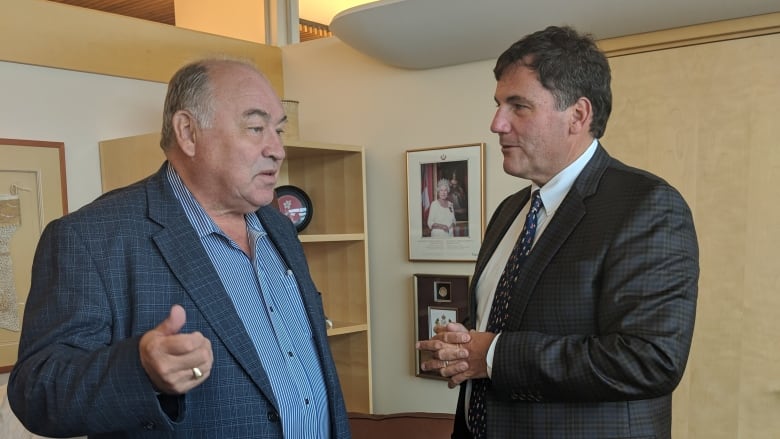Midweek podcast: Pot pardons and supply management woes

Supply management may have been an exploitable trade irritant for U.S. President Donald Trump during the NAFTA renegotiation process, but it's also an issue bothering the premier of the Northwest Territories.
Bob McLeod told The House this week that it's impossible for his territory to expand into agriculture markets because of Canada's heavy regulations on dairy and poultry.
"We can't get in there," he said. "We can't get into egg production, we can't get into dairy ... because of supply management restrictions."
Supply management allows certain sectors to limit their supply to what Canadians are expected to consume in order to ensure stable prices. Sectors use national marketing agencies which determine production amounts for each commodity and set quotas.
In order to sell their products, farmers must obtain quotas, which essentially license them to produce up to a set amount.
Food security has steadily worsened in Canada's North as wildlife populations decline. Those shortages prompted McLeod's government to muse about investing in agriculture.
The recent trade negotiations put American access to Canada's dairy market on the table. McLeod said it's puzzling that foreign countries are often granted more access than his territory. The premier said his government is looking other options and processes.
Food scarcity isn't the only problem on his plate. McLeod said his territory, which once had no trouble attracting investment capital, is struggling to remain competitive as money flees south.
"We can no longer take investment for granted."
Government's pot pardons don't go far enough for NDP
Murray Rankin isn't pleased with the federal Liberals' plan to pardon Canadians for pot-related crimes. For him and other New Democrats, record expungement is the way to go.
The NDP says marijuana convictions have disproportionately affected certain segments of Canada's population and those people deserve to have those legal rulings erased.
"My main concern are people who are, for example, racialized," Rankin told The House.
When recreational cannabis use became legal on Oct.17, the government also had to come up with an answer for the roughly 500,000 Canadians who were asking what would happen to their criminal records for marijuana use.
In the end, the government opted to go for pardons over wiping the slate completely clean — something Public Safety Minister Ralph Goodale said should be reserved for historic injustices.
Rankin, however, sees cannabis convictions as an injustice.
His private members' bill would wipe away those marijuana convictions, meaning Canadians could check "no" when asked if they've ever been convicted of a criminal offence and could give that same answer at the U.S. border.
C-415 is due for its second hour of debate on Friday in the House of Commons.
